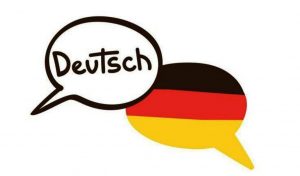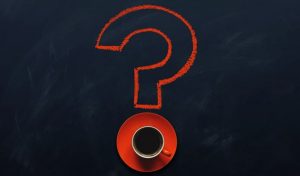Which Is Easier To Learn, French or German?: Learning a second language might be time consuming and difficult, but it is well worth it in the end. For starters, learning a new language may help you connect with individuals from various cultures more readily; you’ll be able to interact with them in their own language, allowing you to form long-term relationships. The second primary reason you should consider learning a new language is that it will help you better your job. According to research, the demand for multilingual experts increased rapidly between 2013 and 2019.

For global employers, the more languages you know, the more valuable you become. Due to a variety of factors, studying two languages may no longer be feasible for everyone. They must select one of these two languages in this case. However, people are frequently perplexed when deciding which one to choose. They also offer a few questions, such as which language is easier to learn, French or German, and which is more advantageous to study, and so on.
According to research conducted by the US Foreign Service Institute, German and French are both simpler to learn for English speakers. We’ll go through a few things to think about while deciding whether French or German is the easier language to learn.
Not sure of which language to study? The question now is, which of these languages is the simplest to learn, and why? Let’s look at the statistics behind why studying one of these languages over the other would be wiser, and then form a decision based on the findings.
Recommended: Most Spoken Languages in the World
Why Learn French?
Some people choose French since it is spoken in so many countries. Others want to learn more about the rich literary, historical, and cultural history of the French-speaking world. Some people are simply drawn to one another. You already know why French was your first choice. Here are a few surprising advantages of studying French.

a. In the future, French will be the dominant language.
b. For commercial purposes, French is the world’s second most useful language.
c. You get smarter by studying French.
d. One of the top ten majors that will lead to lower unemployment and greater wages is French.
e. You become more creative after studying in a French-speaking zone.
Also see: Top 10 Best Countries for Your Master’s degree program
Why is it easier to learn the French language?
a. The French are less concerned with the past: When discussing anything that happened in the past in English, it’s like opening Pandora’s box of nuances, meanings, and complexities. However, it’s a lot easier in French.
In spoken French, j’ai fait means “I did,” “I have done,” and “I did.”
In spoken French, I used to do, was doing, and would do is simply je faisais.
b. Gender differences are obvious: Getting acclimated to the concept that each word has its own gender is one of the most difficult things for English speakers to accept while studying French. A ‘she‘ is a French table, whereas a ‘he‘ is a French wine. In contrast to Germany, where genders are so random that they drive all pupils insane, in France, there are patterns that are very easy to discern.
MASCULINE
If a word’s ending is -age, -ment, -il, -ail, or -eil, it’s a -age, -ment, -il, -ail, or -eil. -euil, -eau, -eu, -er, -oir, -isme, -ing, -ard, -am, -um, -em, -it, -er If the suffixes -ent, -in, -int, -om, -ond, -ont, -ème, or ège are present, the word is normally masculine.
FEMININE
When a word ends in -tion, -sion, -son, -ure, -ude, -ade, -ée, -té, or -ure, – It’s normally feminine when it ends in -ière, -euse, -ance, -ence, or -ie.

Also see: Best education system in the world: Top Countries
c. In comparison to Italian, Spanish, German, and most other European languages, French verbs are significantly easier to learn: Our verbs in English are mostly the same regardless of who performs them. I’ll say something, you’ll say something, we’ll both say something, and so on. The only one who genuinely talks is he, she, or it. Things appear to be somewhat different in French, despite the fact that they are rather simple. This is how the verb parler, which means “to speak,” looks:
je parle
tu parles
il/elle parle
nous parlons
vous parlez
ils/elles parlent
This may appear frightening at first look. However, four of these are really pronounced the same way. Because the ‘s‘ at the end is silent, je, tu, il, and elle all sound precisely the same as je parle, and the -ent in ils parlent and elles parlent is likewise quiet. There are three options for endings: parle, parlons, and parlez. Things get more easier once you learn that vous parlez is pronounced just like the infinitive verb parler, which means ‘to talk.’
That leaves parlons, the most distinctive of all the types. To make things even easier, the French rarely, if ever, say “we speak.” Instead, they just say on, which is roughly equivalent to ‘one’ and follows the same rhythm as il/elle parle. In colloquial French, ‘we talk’ means ‘we speak.’ The only forms of the verb parler (to talk) that you truly need to master are parle (which you say for I, you, he, she, it, us, and they) and parlez (which sounds like the infinitive but is only used for formal and plural ‘you’).
d. Vocabulary in French continues to improve: Some languages are very easy to learn at first but become increasingly difficult as time goes on. However, French is one of those languages that are difficult to learn at first but becomes simpler as time goes on. Particularly if you are already fluent in English. “Apple” is pomme, “automobile” is voiture, “mother” is mère, and so forth.
Recommended: Countries with the Lowest cost of living
Why learn German?
According to current figures, German is the world’s 11th most spoken language. There are more than 132 million German speakers worldwide, with 79 million of them residing in Germany. German is spoken as a second, third, or fourth language by around 56 million people worldwide. Germany, Austria, and parts of Switzerland are among the nations where German is spoken. In several places in the United States and Canada, German is also widely spoken.

Why is it easier to learn the German language?
a. Phonetic spelling is used in German: German sounds have a consistent pronunciation. You will know how to pronounce new words correctly without ever hearing them or needing to memorize what they sound like after you have learnt which letters or letter combinations represent which sounds.
Furthermore, English speakers are already familiar with the majority of German sounds, even if they are occasionally expressed by different letters or letter combinations than in English. Take a look at the sounds that the letters below create.
Recommended: Hardest English words to spell
b. There is just one present tense in German: There are several tenses for conveying current time in many languages. In addition to the basic present tense (I go), English includes a continuous present tense (I am going) and an emphatic present tense (I do go). There is just one way to say these three things in German: ich gehe. Here are a few more examples:
Er besucht seine Eltern.
He pays a visit to his parents.
He is paying a visit to his parents.
He does pay his folks a visit.
Wir helfen dir.
We help you.
We are helping you.
We do help you.
c. For conversational purposes, German has only one past tense: The present perfect tense is used in German to describe all past acts or conditions.
Ich habe mit meinen Freunden Karten gespielt. My pals and I played cards.
I played cards with my friends.
I have played cards with my friends.
I was playing cards with my friends.
I did play cards with my friends.

d. Many English terms have been adopted by the German language: Intense interaction with the English-speaking world, especially since the mid-twentieth century, has enriched German with a large number of new English loan terms that any English speaker will recognize: hi, cool, jogging, Computer, chatting, Management, Bestseller, Band, Star, clever, fair, Job, Trend, testing, Baby, downloading.
These terms, along with a slew of others, have been included in standard German, providing English speakers with even more access to the German lexicon.
Recommended: Best English Speaking Countries Africa
Which Is Easier To Learn, French or German?

You may draw your own conclusions based on the statistics and factors now that you have a better understanding of them. Because of its verb conjugations and pronunciation techniques, French might be more difficult to master. It may, however, be handier if you want to reside practically anyplace on the planet.
German, on the other hand, maybe simpler to learn and master, and it may be useful if you want to go to Germany, Austria, or Switzerland. It’s all about you and your needs at the end of the day.

Edeh Samuel Chukwuemeka, ACMC, is a lawyer and a certified mediator/conciliator in Nigeria. He is also a developer with knowledge in various programming languages. Samuel is determined to leverage his skills in technology, SEO, and legal practice to revolutionize the legal profession worldwide by creating web and mobile applications that simplify legal research. Sam is also passionate about educating and providing valuable information to people.